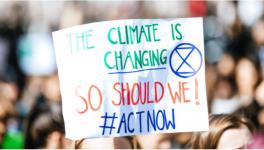India's Offer: Each Nation for Itself
WHEN Minister for Environment and Forests Jairam Ramesh speaks, controversy cannot be far behind. But when he spoke in Parliament last week to announce a new Indian stance for the forthcoming Copenhagen climate change conference, namely to unilaterally reduce India's emissions intensity (ratio of emissions to per capita GDP in PPP dollars) by 20-25 % by 2020, he did so with the full authority of the government.
Let me say right away that I do not have problems with such a target per se, but huge problems with the framing of the new stance, its timing and what it does not say.
The IPCC Report itself states that whereas developed countries, which are primarily responsible for climate change, should undertake deep cuts in emissions below 1990 levels, developing countries too, especially the larger ones, should undertake meaningful deviations below baseline as regards future emissions. In other words, while developed country emissions should drop sharply, developing countries should slow their emissions growth rates, aided by fund and technology transfers from the former, such that the two eventually converge to some equitable and sustainable level. India could have made a pro-active offer along these lines, but much earlier when it could have influenced the negotiations process and outcomes, rather than at the fag end. India's offer was barely noted in the international media and by other countries except in the US by President Obama who is using every crutch to mollify a suspicious conservative constituency. More importantly, India should have made this offer not unilaterally but, along with China and other G5 nations, conditional upon developed countries committing themselves to reducing emissions by 40% below 1990 levels by 2020 and 90% by 2050 as called for by IPCC.
How does a unilateral offer help in any negotiation which is all about give and take? The Ministers speech was full of non-negotiables as regards what India would or would not do, but had no mention what he expects in return from the developed countries or of minimum non-negotiables on their part.
Developed countries have virtually rendered Copenhagen useless by making extremely low emission cut offers the US 3%, EU 25% and Japan 7% with respect to 1990 levels. The world knows this is grossly inadequate and irresponsible. India accounts for roughly 4% of global emissions, compared to just under 50% of the developed countries. Of what use will India's offer be if the latter make only nominal cuts? Does India agree to the dismantling of the Kyoto framework as the US and others are now demanding, virtually undoing two decades of climate negotiations? Neither has humanity's battle against climate change benefited nor has India gained diplomatically by this unilateral and late offer, a position to which India has been dragged kicking and screaming by China's prior declaration and earlier conditional offers by Brazil, Mexico, South Africa and Indonesia.
To make matters worse, the Minister repeated what must now be taken as official government policy, namely that such unilateral action by India, without reference to actions by others especially by developed countries, was necessary to counteract climate change impacts in India. Indian actions to counter climate change in India! As if emissions by the US or China have no effect on climate change and its impacts in India, as if Himalayan glaciers will stop melting or the Sunderbans and Indian coastal cities will not be submerged under rising sea-levels only if India reduces her emissions . Fact is, climate change is a global phenomenon and cannot be tackled as a purely national problem calling for purely domestic solutions. India has now provided developed countries with the ultimate alibi: only India itself is to blame for climate impacts it will face, so why should anyone else do anything about it!
Get the latest reports & analysis with people's perspective on Protests, movements & deep analytical videos, discussions of the current affairs in your Telegram app. Subscribe to NewsClick's Telegram channel & get Real-Time updates on stories, as they get published on our website.























